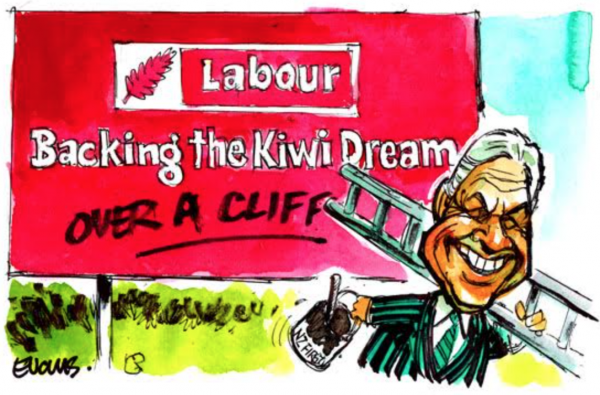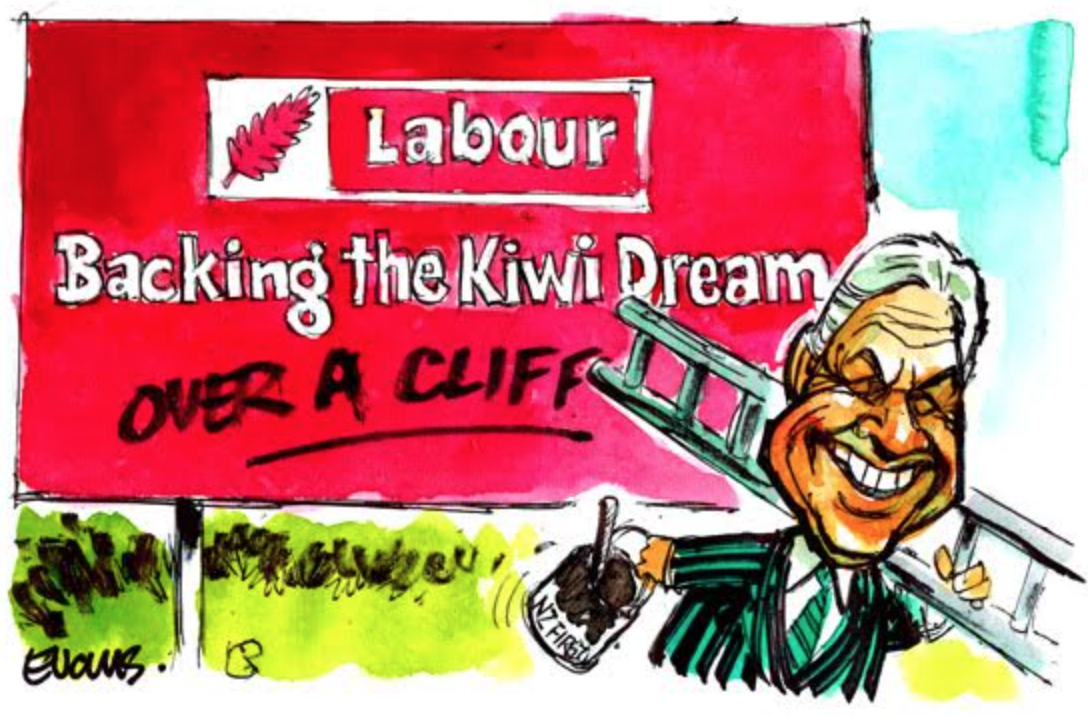
The debate over whether or not there should be a binding referendum on eliminating the Maori electorates as suggested by NZ First looks like it’s more mischief making by Winston than genuine policy.
There are five reasons why eliminating the Maori electorates should not happen and why the whole idea of this is so unfair.
The first is the idea that allowing the majority to decide the political rights of the minority should somehow go to a binding referendum. How outrageous is this? An indigenous minority in a democracy having their rights determined by the majority would never have legitimacy. It’s good that Winston is finally starting to acknowledge that it should be left to Maori to decide if the seats go.
Which brings me to the second reason why eliminating the Maori electorates should never happen. If we look at the general roll and the Maori roll, the majority of Maori are on the Maori roll. Winston suggesting a referendum for just Maori on electorates the majority of Maori are already on is a waste of money. It will be Maori who decide whether or not they will hand over their electorates, it is not up to Winston!
The third reason it should never happen is because we shouldn’t be rewarding angry voters with fear based ideas, we should be seeking to make actual commitments to bringing Maori culture and Pakeha culture together rather than reactionary garbage like binding referendums on Maori electorates.
The fourth reason is history. To simply dump the right of Maori to have their own electorates as recognition to the injustices of colonialism shows we have learned nothing from our history as a nation.
The fifth reason why eliminating the Maori electorates should never happen is because Maori would never accept it. If Maori had their electorates stolen from them, the protests would become our own Standing Rock moment.
In Labour we believe the Maori Electoral Option held every 5 years remains the right way for Maori to decide when the electorates are no longer needed.
Winston is better than this I know he is proudly Maori and he has strong Maori advocates like Pita Paraone, Shane Jones and Ronnie Mark who will be giving him advice and counsel. I hope he listens to them. He needs to remember he’s chasing National voters, not trying to copy National Party policy.






A couple of things about this issue that strike me:
1. It seems that the issue of separate Maori seats always comes up when National is feeling the heat and is looking for scapegoats. This is happening now. Yes it is Winston doing the populist thing and not National but National right now must be silently praising God about it. Do you hear National opposing Winston about it? Nope.
It is National that really wants to abolish the Maori seats.
Why? because National can’t stand the idea of having seven seats that it can never win, which was a main reason why they greased up the Maori Party.
They would do it and would be happy to go into government with Winston on a promise to do a referendum on the issue. Another reason why I think Winston is more likely to do a deal with National than with Labour.
2. We get the same tired old rhetoric about “letting Maori choose for themselves whether they want separate seats, blah blah blah, etc”. The reality is that if a referendum happens, there will be a lot of gerrymandering by National and Winston to make sure a lot of Maori on the general role come back onto the Maori roll just for this vote to try and skew the vote for the abolitionists. Surely it is no co-incidence that the next option for Maori to switch between the two roles comes up in 2018.
How convenient eh?
The reality is that the option will be forced on Maori by non-Maoris with the hope of abolishing seven seats that never vote National and diluting the Maori vote amongst the general electorate to weaken opposition to National.
You cannot trust those who have a stake in abolishing separate Maori seats to conduct such a referendum fairly.
to
… ” The debate over whether or not there should be a binding referendum on eliminating the Maori electorates as suggested by NZ First looks like it’s more mischief making by Winston than genuine policy ” …
You have just answered yourself , Willie.
Here’s five reasons why he did it.
1) It takes soft Nat voters away from National and strengthens Peters bargaining chips with National if he chooses to go that way.
2) It ensures that Labour cannot take him for granted and marginalize him in preference to the Greens because :
3) those soft Nat voting defectors, along with the huge following Peters is getting in the provinces ensure huge bargaining capacity. This counters the moves by the Greens and the Maori party forming a secret bloc to cancel numerical advantage that Peters would have in forming a coalition with Labour.
4) Peters surmised that the Greens and the Maori party may have had private talks, – as both are quite amenable in many ways. So in order to neutralize that potential bloc, – he attacks the very foundation the Maori party needs to stay in parliament , – the Maori electorates , – and weakens competitors in negotiations with both National and Labour in one fell swoop.
5) Peters knows who his loyal support base is. He knows they will understand his tactics and wont abandon him . He also knows that the Maori seats issue is a throwaway issue. But it can be used to lure the soft right swing voter and bolster his bargaining with either National or Labour and also get rid of any small party’s that could compromise his demands in any coalition government formed after September 3rd.
That is why he had both a protagonist ( Paraone ) and an antagonist (himself – Peters) when announcing these policy’s. It is along these lines that the ‘cutting parliament numbers’ has been forward as well… it serves a dual purpose.
Winston Peters remains one of our most brilliant , seasoned and experienced politicians in modern times. And yet he is consistently underestimated by less longstanding and experienced politicians. He is a nationalist , and he has never changed his stance on opposing neo liberalism.
There are very few in parliament today who can come anywhere near matching his strategic and tactical brilliance.
Even John Key was afraid of him.
Comments are closed.